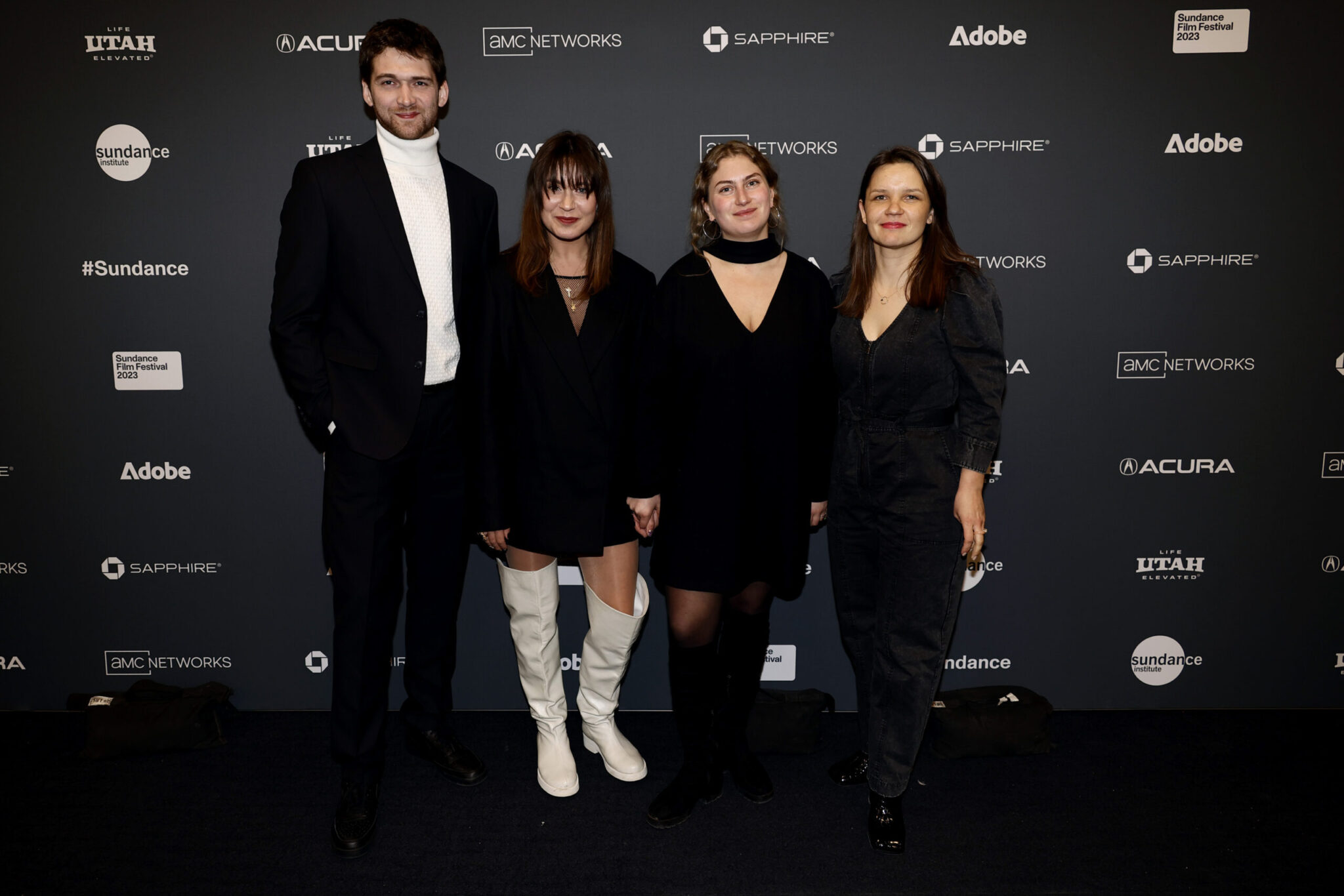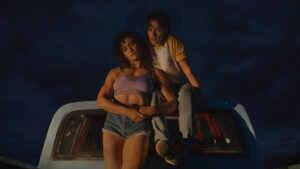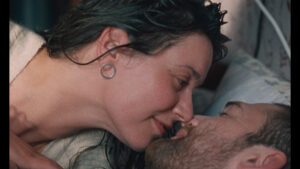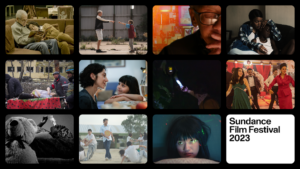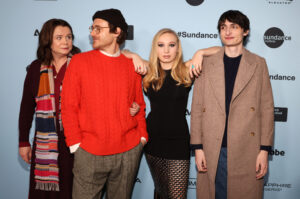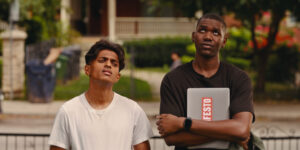PARK CITY, UTAH – JANUARY 21: (L–R) Actors Kęstutis Cicėnas and Greta Grinevičiūtė, Director Marija Kavtaradze and Producer Marija Razgute attend the 2023 Sundance Film Festival “Slow” Premiere at The Ray Theatre on January 21, 2023 in Park City, Utah. (Photo by Frazer Harrison/Getty Images)
By Aliese Muhonen
One day, the tall, handsome sign language interpreter Dovydas walks into the pretty, free-spirited modern dancer Elena’s studio. He’s there to work as a translator for a dance class she’s teaching to deaf students, but he immediately finds additional motivation to show up: From the moment guy meets girl, they click. But not in a syrupy, rom-com kind of way. This is a real-feeling slow burn, driven by mutual curiosity.
Their conversations are easy, their chemistry undeniable. They linger after the classes to walk together, talking about everything and nothing. Both suspect they have something special.
While Elena’s dance colleagues are skeptical of her new paramour’s significance — her flings tend to last a month at the most — she rebuffs them. “I have a weird feeling,” she says, “that I’ve known him for ages.” And every time he leaves, she misses it.
As their attraction grows, the time comes for a define-the-relationship talk. That’s when Dovydas drops a figurative bomb (at least to Elena): He’s asexual, and doesn’t experience physical attraction to anyone.
A touching romantic drama exploring intimacy (and not just the kind you’re thinking of), Slow is a thoughtful, sensuous meditation on learning to connect in an atypical relationship. The Lithuanian film premiered January 21 in the World Dramatic Competition at the 2023 Sundance Film Festival.
Historically, asexuality has been as misunderstood in the film world as it is in real life. There’s a lack of representation in creative media, and the limited portrayals available are often negative or inaccurate; too many stories feature tropes that the condition isn’t permanent and can be “fixed.”
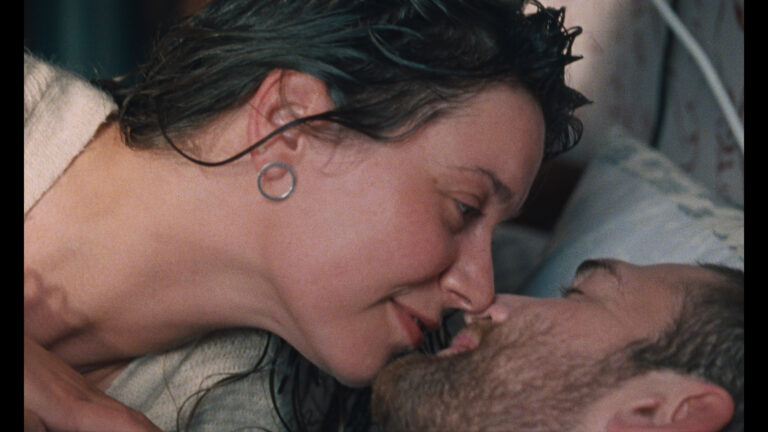
Director Marija Kavtaradze hopes to change that. “I had so many questions of my own about their relationship, so I knew that I [could] write it because it was interesting for me to go into that process,” she says at the post-premiere Q&A. “I had to read a lot, and had [conversations] with asexual people who answered questions. … I thought if we overexplained it, maybe it wouldn’t be believable for their story.”
Slow is indeed believable, with naturalistic, compelling performances from the two leads and an artful production. With a minimalist storyline — the couples’ defining (and redefining) their relationship forms the majority of the film’s plot and conflict — there’s additional pressure on the actors to form characters that are intriguing and authentic. And Greta Grinevičiūtė (Elena) and Kęstutis Cicėnas (Dovydas) deliver.
Elena is the embodiment of sensuality as an intuitive modern dancer. Freewheeling in her movements and love life, she’s doubtful at first that she can be with someone who’s not sexually attracted to her, and Dovydas is unsure he can meet her physical needs. But they’re both open-minded and willing to try. Each character’s desires and struggles are depicted with multifaceted sincerity as they navigate nebulous romantic territory.
One can’t help but feel that the film serves as a mouthpiece for the asexual community — and the people who love them — and an education for those unfamiliar. “I know it’s hard to understand,” Dovydas says after disclosing his sexuality to Elena, “But it doesn’t mean I don’t want a relationship.”
In another illuminating moment, Dovydas delivers a monologue that likely captures the frustrations of asexual relationships everywhere: “I don’t think there’s one correct way of being together. There are all kinds of agreements, aren’t there? Open relationships and so on… Damn, who set the rules for everyone to live by?”
Even when the answers aren’t clear, Kavtaradze hopes the couple’s story is an inviting and personal experience for viewers. “I think [their relationship] is one of the most beautiful things to look at,” she says in a “Meet the Artist” video interview with Sundance, “because if they [hadn’t] met or if they never took [a] chance on each other, then there wouldn’t be anything. But now there is.”




